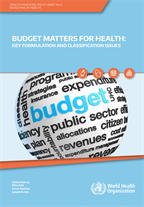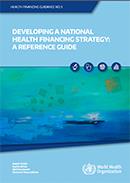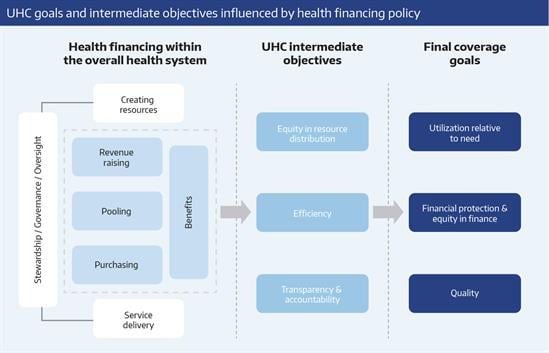Raising revenues for health
WHO’s health financing team works with countries to design and implement health financing policies, including policies on revenue raising, which take into consideration both global evidence and local context.
WHO’s support to countries on revenue raising policy is guided by principles and recommendations which are summarized below:
- To make progress towards UHC countries must move towards a predominant reliance on public funding for its health system. Public funding includes those which are compulsory and pre-paid, meaning paid before the need for care is identified or accessed. Typically, this means taxes. A compulsory source means that the government requires some or all people to make the payment, whether they use the health service or not.
- Out-of-pocket payments are almost always regressive i.e. lower-income households face greater financial burden.
- Despite growing interest in new taxes, the scope to raise significant resources from these sources is often limited; furthermore, general allocations may be reduced, effectively offsetting new revenues where these are earmarked.
- Hence, earmarking revenues does not automatically lead to an increase in the level or predictability of public funding for health: more important the political commitment adequately fund the health sector, not whether funds are earmarked.
While guided by these principles, the WHO team supports countries to develop a practical implementation strategy sensitive to local political, social and economic circumstances.





